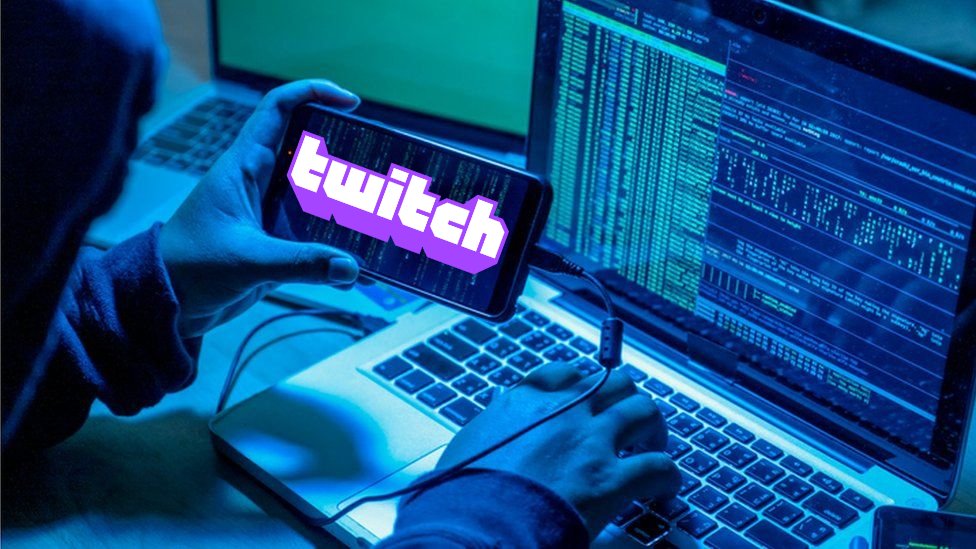It’s hard to say what is more devastating for the Twitch community, that the source code for the game streaming service has been released or that all of the top gamers’ incomes have been revealed?
This is after all an audience of people who tap into the strange voyeuristic nature of humanity that wants to watch sportsmen, and now gamers, do their thing.
This generation of gamers has luckily been able to capitalise on this happy circumstance which allows video gamers to make a pretty decent income just by playing games. Never in all of human history have we geeks had it this good.
Not that you would know from the outcry about the Twitch leaks.
The leak showed that 81 streamers each made over $1m from Twitch from August 2019. Amazon bought Twitch in 2014 for nearly $1bn. It has an estimated 140m monthly active users
An anonymous user on the online forum 4chan dumped a 125GB file with the source code and earnings earlier this month.
“Jeff Bezos paid $970 million for this, we’re giving it away FOR FREE,” wrote the user. “Their community is also a disgusting toxic cesspool, so to foster more disruption and competition in the online video streaming space, we have completely pwned them,” they added.
The word pwned, from a misspelling of owned, is used by gamers when they thoroughly beat an opponent. It is now used mostly by hackers or when data is leaked.
The data leak is huge, effectively revealing all of the underlying code that makes Twitch function. Could a competitor copy Twitch using this code? Very much so. Sure, a behemoth like Amazon would be waiting with its phalanx of lawyers for any such move, so an outright clone is unlikely.
But that video streaming code would almost certainly pop up in many other places, in other apps, and for other services. A benevolent way of viewing it might be that Amazon has unintentionally provided the impetus for many other ventures through this leak.
But that is to overlook the malevolence of the hacker and the sheer destructive nature of dumping a company’s proprietary code onto the internet – however much its culture is deemed a “disgusting toxic cesspool”. Given the rampant sexism of the gaming industry, it might be an apt description of the entire culture of this now dominant form of entertainment.
Ethically, is it a moral good for new services and apps to emerge because of a crime, because of theft? Does it truly “foster more disruption and competition in the online video streaming space” if – as the lawyers argue – its source is the fruit of a poisoned tree?
It’s hard to agree with that kind of anarchic argument, which would rapidly fall apart if applied to other contexts or circumstances. It is, in essence, at the heart of copyright laws – to protect those people, sometimes geniuses, who come up with good ideas; or create amazing music or write extraordinary novels.
Unfortunately, this is society, a world, where such honour is in limited supply. Many hundreds of millions of people happily steal music and movies in the still-held belief that TV companies are somehow evil and deserve it. It is part of an outdated idea from the early days of digital sharing that it’s “easier to steal” than to legitimately watch and pay for TV shows.
Not anymore. Netflix’s unexpected and unprecedented success has given rise to innumerable competitors, with just about every broadcaster or tech firm rolling out a subscription service of their own. It’s not a cheap exercise, but it is now easier to stream than steal.
I subscribe to Netflix, DStv Premium (and therefore the excellent Showmax), Amazon Prime Video and Apple TV+ (albeit the latter came free for upgrading my iPhone). I also subscribe to Spotify, Audible (for amazing audiobooks and lectures) and Luminary (for Trevor Noah and other podcasts). I don’t even want to calculate that – even though I already know.
I also subscribe to The New York Times, The Guardian, Daily Maverick, BusinessLive, TimesLive, and News24. Writing that, it seems like a lot. Not for a news junkie like me. My editor Tim Cohen goes one further with his PressReader subs – which he elucidates as if it is the holy grail of news services. He may be right, as he often is about so many things. (Hi boss.)
We live in a world where it is now possible to reward the people who create that TV show or podcast or play games for a living. Like so much else, it is an economy of scale – the more subscribers you have, the more you make. I can’t bring myself to use the word de jeure “creators” – which so many people have used about Twitch stars. It’s the new buzzword now that everyone has worked out a so-called influencer, who gets paid to promote a brand, which is not authentic nor believable.
As much as you want to support anyone who makes $1m playing games (with a small corner of the screen for a video selfie so viewers can see your facial expressions), it’s kinda hard to classify that as “creativity” which is the essential ingredient, one had to imagine, for labelling someone a “creator”. Either that or divine powers.
The anonymous hacker who posted the Twitch data gave an unintentional insight into themselves as gamers by using the word “pwned” – but also the sadly destructive nature of online gameplay. Forget for a moment the irony of a data thief, a clearly amoral hacker, calling anyone else “a disgusting toxic cesspool”.
Despite appearances, online gaming doesn’t always foster a sense of sportsmanship (I couldn’t find any references to the term being updated to gender-neutral, nor did DuckDuck go). Instead of just beating your opponent, gaming thrives on destroying them – of pwning them. That alone isn’t healthy. And that is the culture of competitiveness that generations of youngsters are learning. Losing, as every child is told, is part of playing. Learning to lose, and learning to lose graciously, is part of the education process. This crucial life lesson is slowly being eroded in the winner-takes-all gaming culture where “pwning” your opponent is seen as part of the winning process. Bad sportsmanship is being inculcated in a generation of future sour losers.
This article first appeared in the Daily Maverick.




